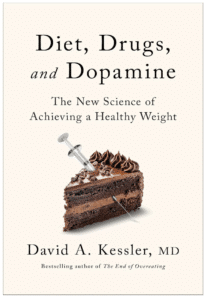The Psychological and Social Complexities of GLP-1 Drugs

The last couple of weeks have been eventful in the realm of the ever popular GLP-1 meds, from positive news of yet another benefit to taking them (like lowering heart-related risks) to the sobering warning of a new, negative side effect on health, plus some substantial insurance coverage changes. Let’s take a look.
As has been established, GLP-1 receptor agonists (like semaglutide and liraglutide) and GLP-1/GIP combinations (like tirzepatide) help with weight loss by mimicking hormones that suppress appetite, slow digestion, and promote satiety. When paired with lifestyle changes, they can reduce body weight by 10%–20% over 9–15 months and improve cardiometabolic health. However, side effects like nausea, constipation, and loss of lean muscle mass are common and can prompt many to stop using the medication.
Psychological benefits and challenges
These medications can quiet obsessive food thoughts (“food noise”), reduce shame around eating, and give users a sense of mastery. However, they may also cause emotional side effects. Some users report a flattening of emotions or loss of pleasure in everyday experiences — possibly due to changes in the brain’s dopamine system. Studies show mixed results on whether GLP-1s increase depression or suicidal thoughts, with some linking them to mood issues and others finding mild improvements in depressive symptoms.
Psychologists are becoming essential in supporting GLP-1 patients by helping them adjust emotionally, manage disordered eating, and handle social stigma. Patients often face conflicting societal pressures — praised for losing weight, yet judged for using medication to do so. Therapy helps them navigate shifting body image, relationship dynamics, and grief over old habits or coping mechanisms (like using food for comfort).
Social and cultural complexities
The widespread use of GLP-1s brings up deeper issues around weight stigma, societal bias, and access. Some experts worry these drugs reinforce the idea that larger bodies are a problem to fix, potentially marginalizing people who are fat-positive or not interested in weight loss. Access is another concern: those with lower income or from marginalized communities may be less likely to afford or continue treatment.
Meanwhile, doctors may prescribe these drugs based on appearance, not medical need, and patients with eating disorders can misuse them. The rise of telehealth and loosely regulated medical spas also makes GLP-1s more accessible, sometimes in unsafe ways.
Role of psychology in GLP-1 use
Psychologists support patients by helping them:
• Develop sustainable, healthy relationships with food
• Prevent muscle loss through proper nutrition and exercise
• Strengthen body image and emotional resilience
• Navigate relationship changes and shifts in identity
• Cope with past trauma that may resurface with physical transformation
Some also use trauma-informed therapies like EMDR (Eye Movement Desensitization and Reprocessing) to help patients who used food to cope with abuse or fear the attention that comes with weight loss.
GLP-1s and addiction treatment
Emerging research suggests GLP-1s may help curb addictive behaviors, such as excessive alcohol use. A 2025 trial showed semaglutide reduced heavy drinking days and cravings in people with alcohol use disorder. The effect appears similar to how GLP-1s suppress appetite — by dulling the brain’s reward signals. More research is needed before these drugs are FDA-approved for addiction, but psychologists are encouraged to stay informed as more patients may use GLP-1s for this purpose.
GLP-1 medications offer significant promise for those struggling with obesity, providing both physical and emotional relief. But they also come with complex psychological and societal implications. Experts agree: The success of these drugs isn’t just medical — it’s behavioral. Psychologists play a vital role in helping patients navigate the inner changes that accompany dramatic outer transformations.
Alleviating migraines, but it’s a pancreatic risk
It’s been reported that in a small study, a GLP-1 drug shrank the number of days people spent with a migraine by almost half in a given month. However, the GLP-1 receptor agonists are under investigation by U.K. health authorities due to reports of serious pancreatic side effects, including nearly 400 cases of acute pancreatitis and up to 10 deaths.
The U.K.’s Medicines and Healthcare products Regulatory Agency (MHRA) and Genomics England are examining whether genetic factors may predispose certain individuals to these rare but serious complications. Tirzepatide-based drugs like Mounjaro and Zepbound appear to be more frequently linked to these reports.
While no direct causal link has been established, the investigation seeks to better understand who might be at greater risk. U.K. residents over 18 who experience severe reactions are encouraged to report them through the Yellow Card system and may be invited to submit further details and a saliva sample for research.
Experts stress that GLP-1 drugs remain approved and generally safe when prescribed and monitored by a doctor, but warn against obtaining them through unofficial channels.
CVS Caremark drops Zepbound from coverage, citing cost
Starting this week, CVS Caremark, one of the largest U.S. pharmacy benefit managers, will stop covering Eli Lilly’s Zepbound, a GLP-1 drug approved for chronic weight management, on its most common formulary, affecting 25–30 million Americans. Wegovy, a competing drug from Novo Nordisk, will remain covered, alongside a few less effective alternatives.
CVS says this move is designed to drive down costs by forcing drugmakers to compete, citing the high prices of GLP-1s as a major barrier to access. However, pharmacy benefit managers (PBMs) like CVS have been criticized for their role in rising drug prices.
Doctors and patient advocates argue that GLP-1s aren’t interchangeable, and abrupt coverage changes can disrupt patient care. Side effects, tolerability, and individual response vary, and switching medications mid-treatment can stall progress or worsen health outcomes.
Critics also say this move reflects a broader misunderstanding of obesity as a chronic disease, noting that insurance policies don’t treat obesity care with the same consistency or respect as other chronic conditions.
Providers report being overwhelmed with patient concerns and spending excessive time navigating insurance rules instead of delivering care. Another upcoming policy change: BCBS Massachusetts will stop covering GLP-1s for obesity in 2026, unless prescribed for diabetes.
In response, Eli Lilly is expanding access via its LillyDirect program, offering Zepbound for $499/month out-of-pocket. Still, many worry such policies will create greater inequality and care disruption for people managing obesity.
Your responses and feedback are welcome!
Source: “A new era of weight loss: Mental health effects of GLP-1 drugs,” APA, 7/1/25
Source: “Pill form of popular weight-loss drug lowers heart risks,” Harvard Health Publishing, 7/1/25
Source: “Popular weight-loss drugs show promising new power against debilitating migraines,” Fox News, 7/2/25
Source: “New Weight-Loss Drugs Under Scrutiny Amid Pancreas Concerns,” Science Alert, 7/3/25
Source: “Major insurance changes are coming to GLP-1 drugs for weight loss. Here’s how that could affect patients,” CNN, 7/1/25
Image by Leeloo The First/Pexels










 FAQs and Media Requests:
FAQs and Media Requests: 











